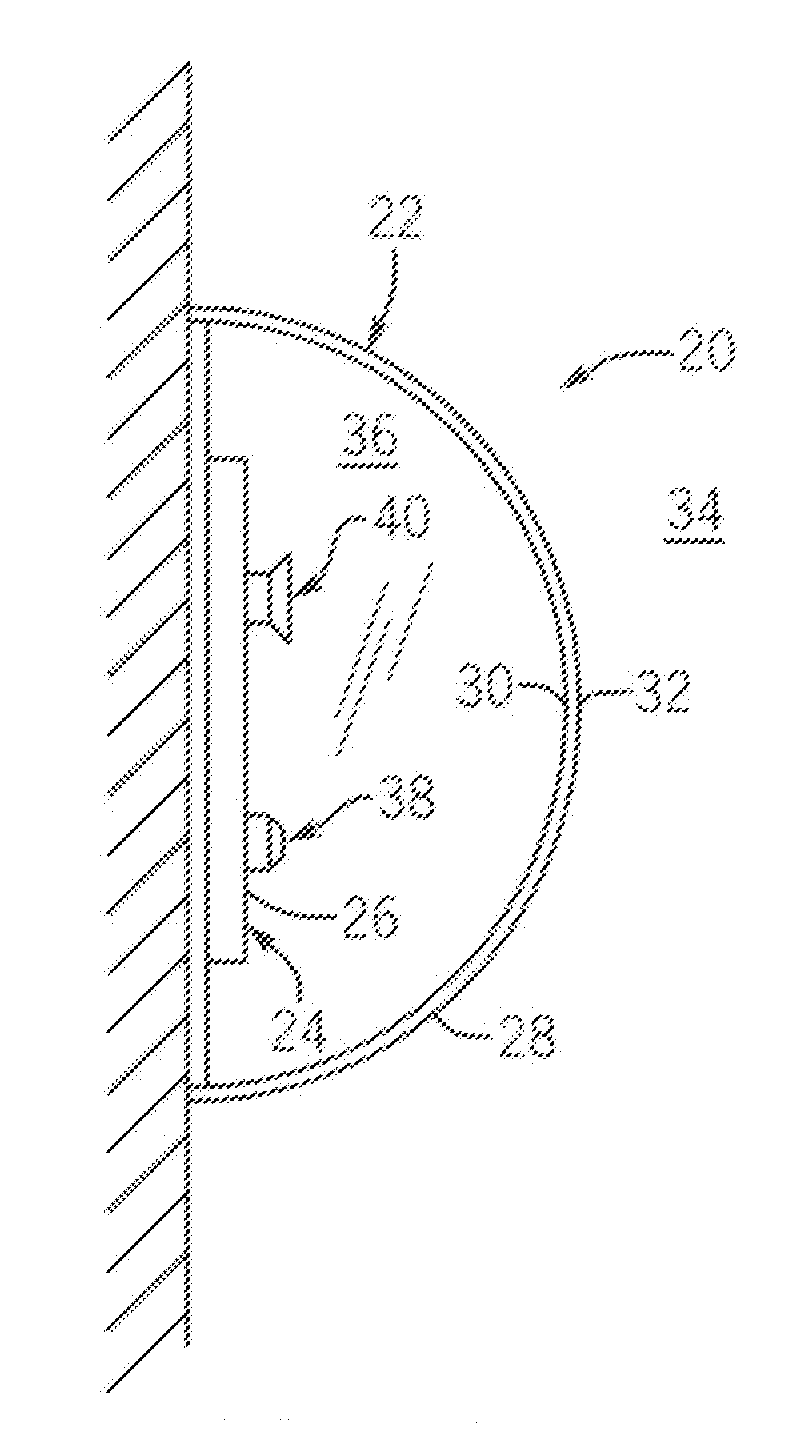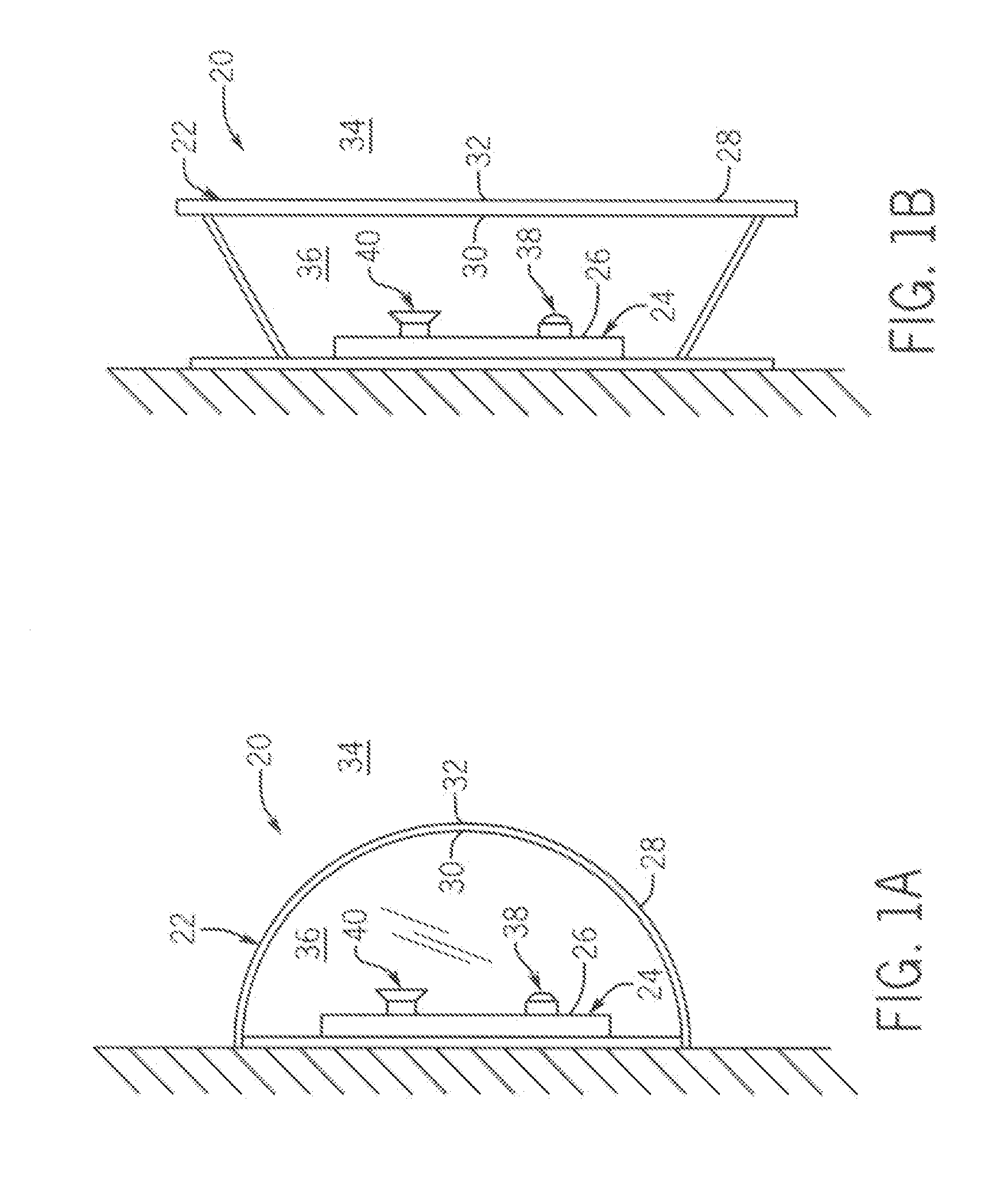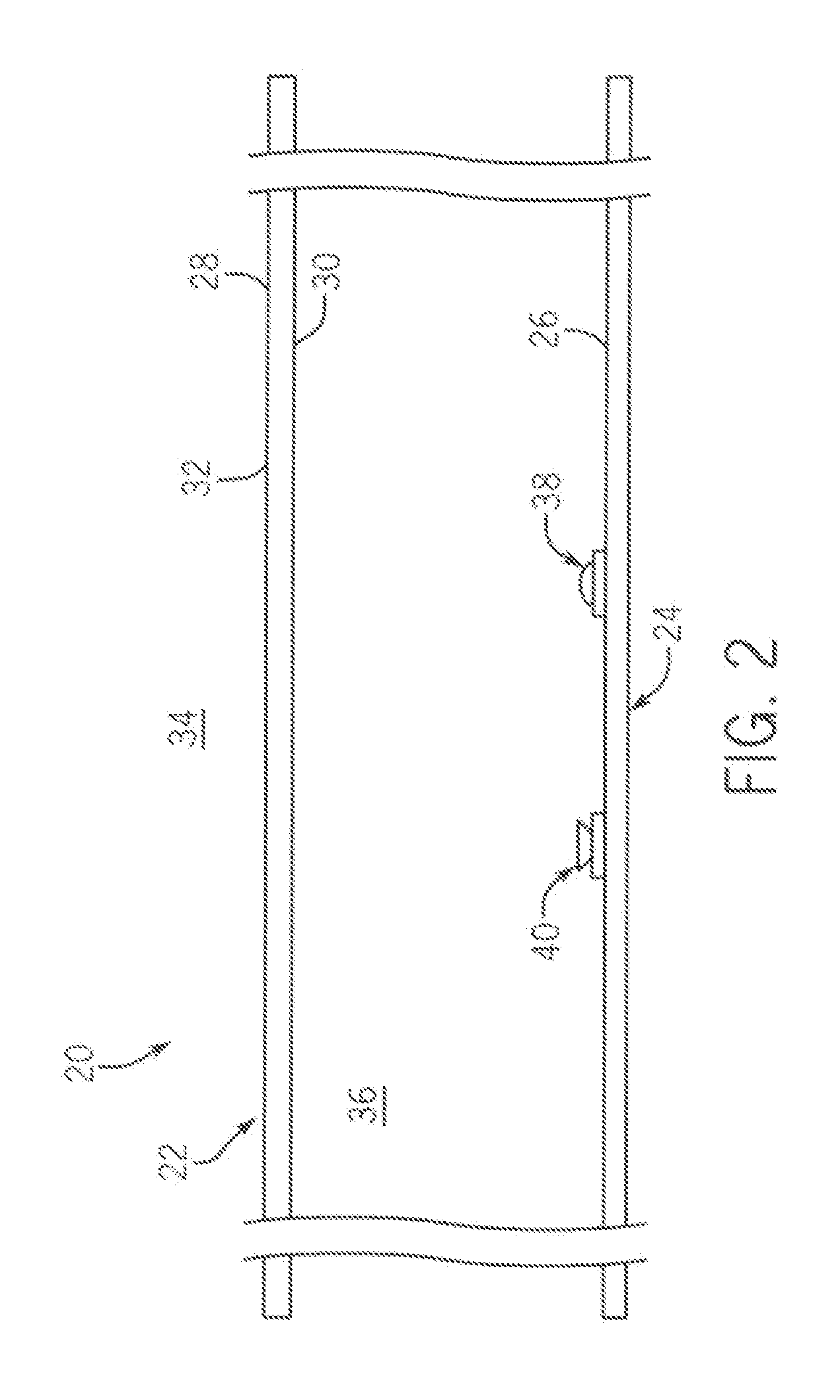Luminous Flux Depreciation Notification System for Light Fixtures Incorporating Light Emitting Diode Sources
a technology of light emitting diodes and luminous flux, which is applied in the field of light fixtures, can solve the problems of low light emitted, slow down of led output, and problems for users of led light fixtures
- Summary
- Abstract
- Description
- Claims
- Application Information
AI Technical Summary
Benefits of technology
Problems solved by technology
Method used
Image
Examples
Embodiment Construction
[0027]The disclosure includes two main parts. The first part is a light fixture 20 including an arrangement of components within an LED lighting fixture 20, heretofore identified as the optical arrangement. The second part is a luminous flux monitoring system 18 including a control and measurement system and control process integral to the control system that oversees its function. The embodiments described comprise preferred embodiments, but do not exclude other possible arrangements or systems achieving the same result through similar means that may be inferred from this disclosure.
[0028]For purposes of this disclosure, “light” is defined as that part of the electromagnetic spectrum having a wavelength or plurality of wavelengths between 360 nanometers and 800 nanometers, inclusive. Luminous flux (measured in lumens) is the sum of the radiant power (in Watts) of all wavelengths of light within a defined space, scaled to a standardized human visual response.
[0029]When light strikes...
PUM
 Login to View More
Login to View More Abstract
Description
Claims
Application Information
 Login to View More
Login to View More - R&D
- Intellectual Property
- Life Sciences
- Materials
- Tech Scout
- Unparalleled Data Quality
- Higher Quality Content
- 60% Fewer Hallucinations
Browse by: Latest US Patents, China's latest patents, Technical Efficacy Thesaurus, Application Domain, Technology Topic, Popular Technical Reports.
© 2025 PatSnap. All rights reserved.Legal|Privacy policy|Modern Slavery Act Transparency Statement|Sitemap|About US| Contact US: help@patsnap.com



